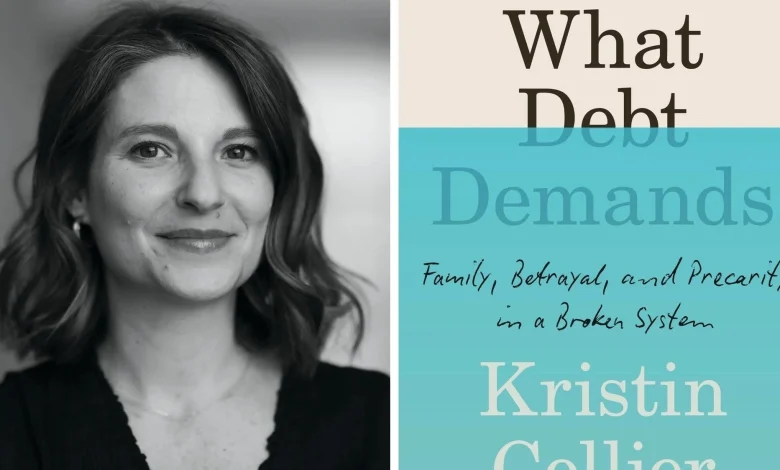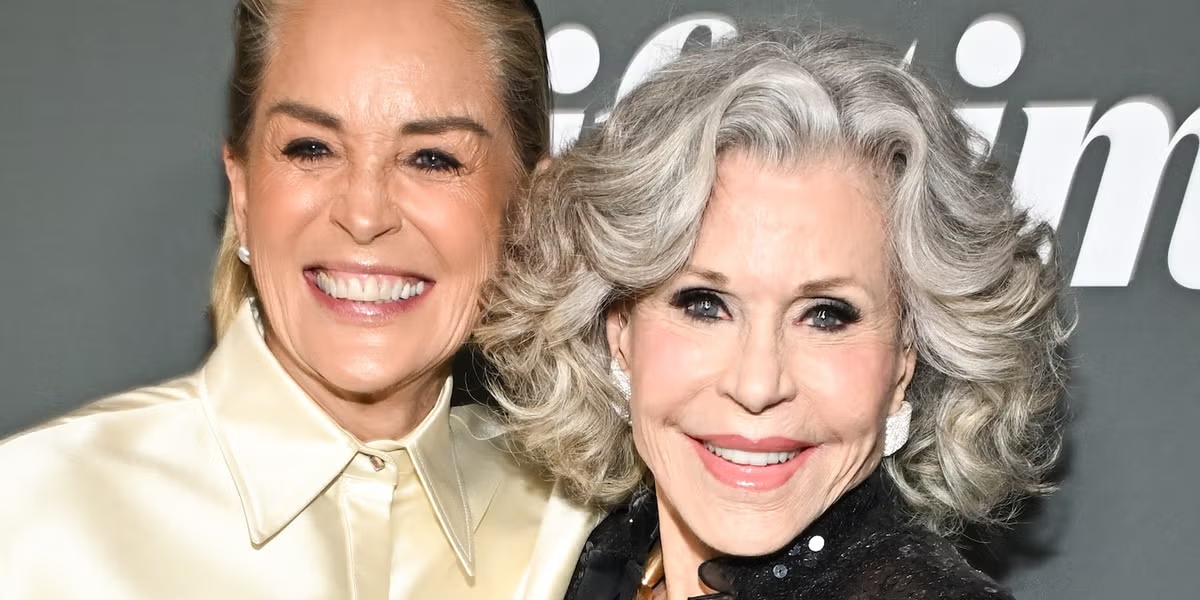New book explores student loan system through author’s story of fraudulent debt

CHRIS FARRELL: This is Minnesota Now. I’m Chris Farrell, and I’m filling in for Nina Moini.
Now, it’s a given for many college students that they’ll begin their adult lives with student loan debt. For the author of a new memoir, the experience was extreme. At 22 years old, Kristin Collier walked into a bank to apply for a credit card, very normal. She walked out with the knowledge that somehow, she already owed more than $200,000. Her mother had taken out the loans in her name without her consent.
Kristin confronts that debt and the way debt shapes life in the United States in her book What Debt Demands– Family, Betrayal, and Precarity in a Broken System. She lives in Minneapolis and joins me now to talk about the book. Welcome.
KRISTIN COLLIER: I’m so happy to be here.
CHRIS FARRELL: All right. Sounds like this is an impossible situation. And explain what you learned about how this debt came to be.
KRISTIN COLLIER: As you said, I noted that I had all these fraudulent loans in my name just when I was graduating college. And soon after that, I learned that my mother had a gambling addiction and acquired about eight fraudulent loans and some fraudulent credit cards in my name to help fuel the addiction. And I also learned that this was possible because of particular ways that private student loans work. So she was able to take out large amounts of money in my name with a Social Security number and a signature and without any interaction with the college. And she was able to put those loans right into her bank account.
CHRIS FARRELL: So I guess this is one of those benefit of hindsight questions. But what do you wish that somebody had told you at this point, when you realize all this debt?
KRISTIN COLLIER: I think I wish that I would have been more actively involved in the funding of my higher education. Like many students, I didn’t really understand how higher education lending worked. And I wasn’t particularly involved in filling out FAFSA, which is the form that everyone fills out to get student aid.
However, I think that these systems are pretty deliberately opaque. And so lots of students aren’t really involved in this process because it relies on their parents’ information, their parents’ finances.
I also wish that I would have run a credit report sooner. I didn’t think to do that. And that might have been helpful. But again, I think that it’s not my fault that it happened. And so I don’t have any regrets.
CHRIS FARRELL: And how big an impact did this have on you for– on your future? You’re 22 years old. You’re at the point where you’re launching your career, and you find out you have this huge debt overhang.
KRISTIN COLLIER: Yeah, it shaped my entire life. I was working a lot of different jobs all through my 20s. I was a public school teacher. But on top of that, I tutored in the evenings and the summers. I taught summer school. I did ACT administration. I was constantly hustling so that I could make these loan payments each month.
And all that work also left me incredibly stressed out, which impacted my health. So I had a lot of stomach problems and kidney problems. And I was treating one illness, and then new ones were popping up. And I was having trouble understanding how they were all connected. And it was very likely because of the stress.
And then it also just shaped my understanding of the future. It was hard to imagine a future filled with joy and with choice. I didn’t feel like I could leave the jobs that I had because I was so busy trying to just make the next loan payment.
CHRIS FARRELL: In reading the book, you talk to a lot of other people about their debt. And so when you heard their experiences, how similar, how different did their experiences seem from yours, which was an extreme?
KRISTIN COLLIER: I think that certainly, all the borrowers that I spoke with took out these loans knowingly to attend both undergrad, and sometimes graduate, school. So in that way, our stories were different.
But ultimately, our stories are pretty similar. These borrowers– their health was impacted. I learned about borrowers who also had health problems that they had trouble treating for years and years. I learned about borrowers who couldn’t do the kind of work they wanted to do because they had to keep on pay– making loan payments. I learned about borrowers who felt like they couldn’t care for their family members or themselves. They couldn’t get the kind of housing they wanted, even borrowers who felt like it was hard to date other people because they were so ashamed of their loan burdens.
CHRIS FARRELL: So what do you want people who don’t– they aren’t burdened by a lot of debt– what do you want them to understand about the debt experience?
KRISTIN COLLIER: I want them to understand that ultimately, it’s not really our fault that we have student loans. There was a point in the history of higher education where the state funded higher education more generously following the Higher Education Act of 1965. And so at that time, people didn’t have to finance their education. They could work their way through school.
And so those of us who have loans now– it’s because we really had no option. And so we don’t deserve to have this debt. And I want people without debt to understand that it’s shaping every aspect of our lives. And we should be fighting for a higher education lending system that is more equal, which means that we wouldn’t have to take out debt to attend school.
CHRIS FARRELL: So where are you now in terms of the debt?
KRISTIN COLLIER: So the fraudulent student loans are no longer in my name, which was an enormous victory and really seemed like that wasn’t going to be possible for most of my journey. I didn’t learn that I wouldn’t have to keep making payments on those loans until I was in my mid 30s after going through a really complicated legal process.
I have a few thousand dollars left of federal loans that I’ve been waiting to pay off through the Public Service Loan Forgiveness program, which has been historically a very flawed program. And I’m hoping to have those relieved because I’ve been teaching for the last almost 20 years now.
CHRIS FARRELL: Right. So this is the program where you’re making your payments for– I can’t remember– what is it, 10 years, or a certain length of time?
KRISTIN COLLIER: 10 years, yep.
CHRIS FARRELL: And then it’s forgiven?
KRISTIN COLLIER: Yep. That’s how it’s ideally supposed to work. There have been some corrections to the program that were made under President Biden. But historically, this program has been pretty flawed. And in the 10 years after it launched, only– I think it was something like 35 borrowers had their loans forgiven.
CHRIS FARRELL: All right. So what’s your advice? You’ve had your experience. You’ve written this book. You talked to a lot of people. So what’s your advice for someone who is dealing with the challenge of a lot of debt?
KRISTIN COLLIER: I think they should start by talking with someone from federal student aid. That is a challenge right now because Trump is trying to dismantle the Department of Education. But all the same, they should get on the phone. They should see what program they’re enrolled in.
If they are in the SAVE program, which was launched under President Biden, that program is no longer going to be in existence soon. And so right now they’re not having to make payments. But there is interest collecting.
If they can’t make payments right now, they should probably just hang out in that program for a while. But if they can make payments, I would suggest switching into one of the other available programs so that they can begin to chip away at that debt and interest as it builds.
I also suggest that they download their payment history if they’re in some kind of payment plan. Often, those payments can get lost as programs change. And then they don’t get credit for payments that they make. So they should absolutely have a record of all the payments that they’ve made.
And then finally, I would get plugged in to Protect Student Borrowers, which is a website and organization that is looking out for student borrowers, among other kinds of borrowers. And they are giving lots of meaningful updates about the next steps students can take.
CHRIS FARRELL: You did a lot of research for this book to paint a larger picture of debt beyond your own experience. But this is also an emotionally fraught family history here. And what’s it been like to put that family history out into the world?
KRISTIN COLLIER: Well, to be honest, it’s been really hard. I feel pretty vulnerable putting my story out there. And of course, I also put my mother’s stories out there, which makes her vulnerable as well. And so that has felt hard.
But I think I’ve also felt a lot of hope in that other people might learn from our story about the higher education lending system, about the experience of debt. And I think offering that story to other people offers a kind of healing to us as well.
CHRIS FARRELL: Well, thank you very much for telling us your story.
KRISTIN COLLIER: Oh, thank you so much for reading it and for having me on.
CHRIS FARRELL: Kristin Collier is a teacher in Minneapolis and the author of the new memoir What Debt Demands– Family, Betrayal, and Precarity in a Broken System. It’s out now.





